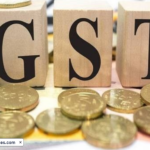In a significant development for the gaming industry in India, two proposals for self-regulatory organizations (SROs) have been submitted to the government.
The submission comes as part of the industry’s response to the amended IT Rules, 2021, which require online real money games to be verified by an SRO to ensure responsible gaming practices.
While the government is expected to finalize the board structure and select representatives for the SROs, it may also consider forming its own SRO if a third concrete proposal is not received.
The two proposed SROs reflect the collaborative efforts of prominent gaming companies in India.
One proposal is jointly submitted by gaming firms associated with the e-gaming Federation (EGF) and the Federation of Indian Fantasy Sports (FIFS), including Games 24×7 and Dream 11.
The second proposal is presented by members of the All India Gaming Federation (AIGF), which includes Gameskraft and Nazara, among others.
The SRO proposals emphasize the inclusion of diverse perspectives in the board structure, such as a retired Supreme Court judge
Cybersecurity expert, a psychologist, and other relevant professionals. These representatives aim to bring expertise in areas crucial to responsible gaming practices.
Discussions are currently underway to define the board structure, establish timelines for game certification, determine evaluation criteria, and address other essential aspects related to the functioning of the SROs.
The government’s priority is to carefully analyze the proposals received thus far and initiate the necessary steps.
Initially, the government plans to notify three SROs, ensuring the involvement of government-approved entities and experts with knowledge and experience in online gaming,
Education, psychology, child rights protection, information and communication technology, and other relevant domains.
Until the SROs are formally established, the government will make decisions regarding the permissibility of online games.
Minister of State for Electronics and IT, Rajeev Chandrasekhar, has emphasized the importance of addressing concerns related to real money gaming and implementing measures to prevent money laundering in online gaming platforms.
The SROs will be responsible for defining the content of online games, safeguarding users against harm, protecting children, addressing gaming addiction risks, and mitigating the potential for financial fraud.
Online gaming companies will be required to display the SRO’s verification mark on their games, communicate policies for deposit withdrawals and refunds, disclose winning distribution methods, fees, and charges, obtain user KYC details, and prohibit third-party credit or financing.
This move towards self-regulation reflects the gaming industry’s commitment to responsible practices, user protection, and fostering a safe gaming environment.
By adhering to the guidelines set forth by the SROs, gaming companies can ensure transparency, accountability, and the promotion of responsible gaming habits.
The establishment of SROs will not only help protect players from potential harm but also provide a framework for the sustainable growth of the gaming industry in India.
Responsible gaming practices are essential for fostering a thriving gaming ecosystem that balances entertainment, user well-being, and social responsibility.
Excerpt:
The gaming industry’s submission of proposals for self-regulatory bodies marks a significant step towards responsible gaming in India.
By actively participating in the establishment of SROs, gaming companies demonstrate their commitment to user safety, transparency, and fostering a sustainable gaming environment.
The government’s collaboration with industry stakeholders through the SROs will help shape the future of gaming in India, ensuring the protection of players and promoting responsible gaming practices.
Together, these efforts lay the foundation for a thriving and responsible gaming ecosystem in the country.
Read More: GST Council Deliberates on Taxation of Online Gaming, Casinos, and Horse Racing






